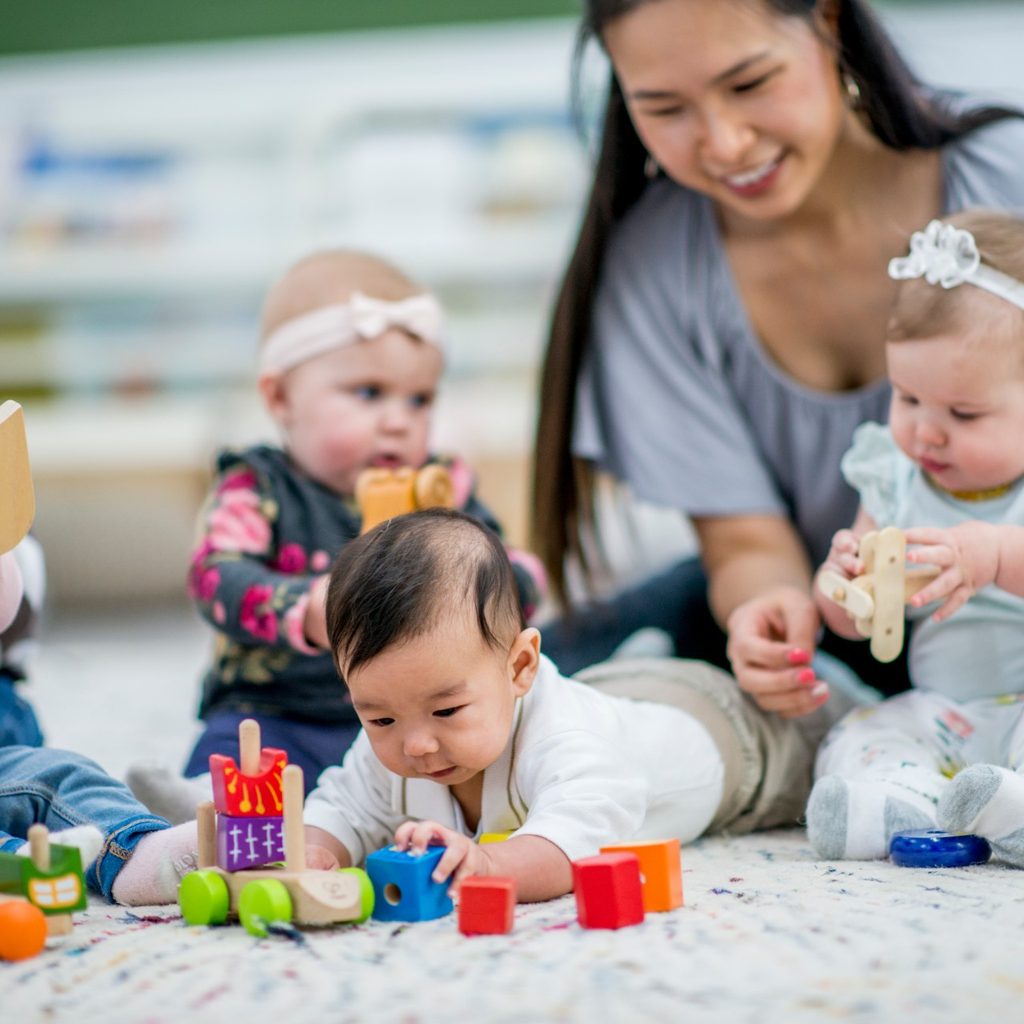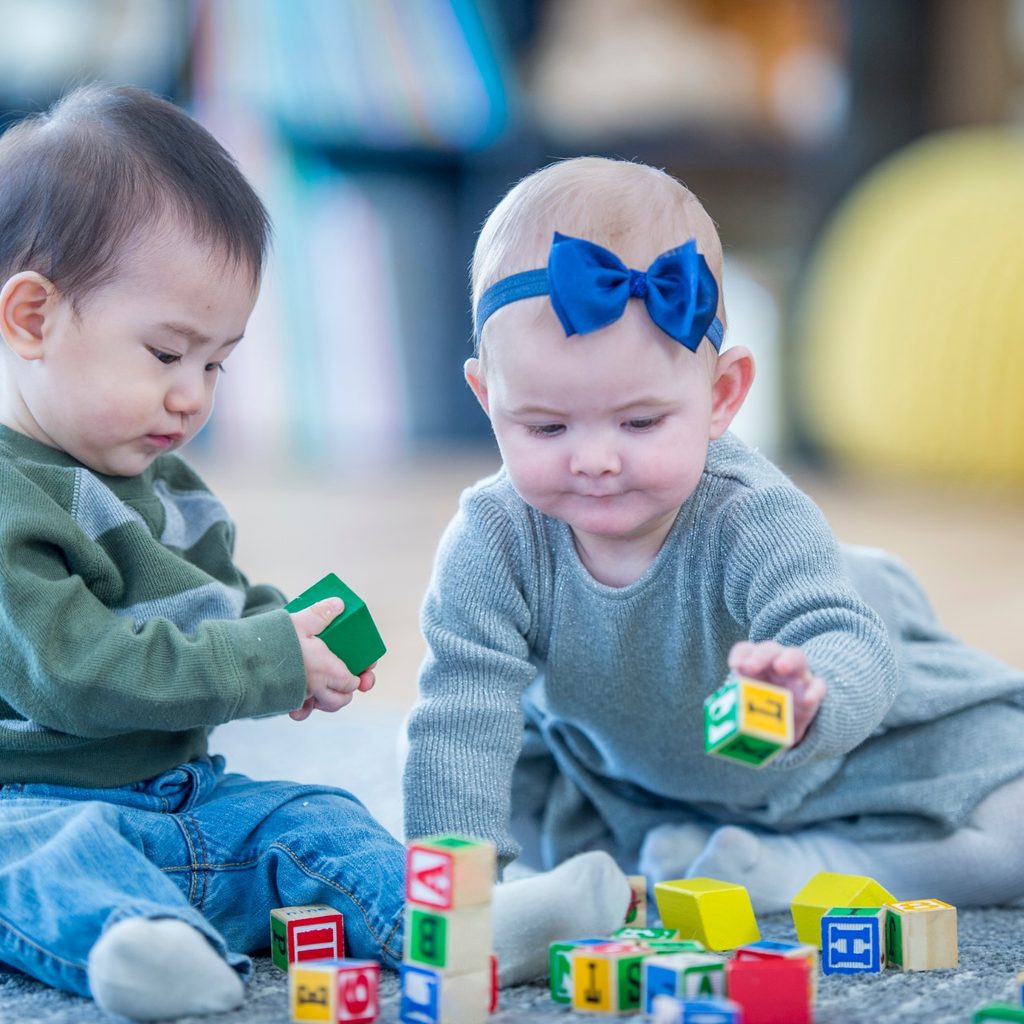Day care is a necessity for working parents and a great way for kids to develop social skills. Studies have shown that quality day care results in better academic performance and cognitive achievement later in life.
As a parent, it’s normal to have some questions and concerns when picking a day care facility. Here are five day care interview questions you should ask to ensure your child receives quality care.

1 – Are you licensed?
Find out about state regulations for day care licensing ahead of time, since requirements vary. Asking about licensing is a good way to make sure the day care follows certain safety standards.
Requirements for a day care license typically include:
- Safety standards
- Best practices for food prep
- Staff training
- Background checks for staff
Day care facilities usually need a license issued by a state agency, but some states have special provisions for facilities with a religious affiliation. Requirements for family child care homes can vary depending on its size.
You can visit the National Database of Child Care to double-check that a facility has a valid license.
Some states have a Quality Rating and Improvement System (QRIS). It’s a framework a day care can use to assess the quality of care delivered and improved it. Find it if QRIS exists in your state, and ask about the steps the day care takes to implement this framework.
2 – Are you accredited?
Accreditation is different from licensing. Some facilities choose to go above and beyond state regulations and get accreditation. It’s usually a sign that your child will receive high-quality care and that the day care focuses on educational programs.
Professional organizations like the National Association for the Education of Young Children and the National Association for Family Child Care can handle the accreditation process, but keep in mind that the requirements to meet vary from one organization to another.
3 – What is the rate and fee structure?
On average, day care costs $991 a month for a baby and $847 a month for a toddler. There are a few questions you should ask about rates and hours:
- Find out whether the day care uses an hourly, daily, or weekly rate.
- How flexible are the hours? Are there extended hours for parents who work late?
- Are there additional fees for services like early drop-off?
- Does the facility offer weekend-care options?
- Is the day care open on federal holidays? Is the rate different?
- If the day care closes on holidays, do you get a discount?
- Are there additional fees for things like meals, snacks, activities, or supplies like diapers?
- Are there discounts available?
- Do you have to pay in advance?
4 – Discipline and communication policies
Ask about how the day care staff handles discipline to make sure their philosophy aligns with your values as a parent. Does the day care use timeout or another method? What kind of situation would warrant putting a child in timeout?
If you can, talk to staff members to find out how they handle children who throw tantrums, won’t share toys, and other situations. Pay attention to how the staff handles these situations when touring the day care.
You should also ask about communication policies:
- Will staff tell you if they had to discipline your child?
- What kind of updates do they share with parents?
- Can you expect to have a short conversation with a staff member when you pick up your child?
- Does the day care share photos and notes about your child’s activities?
- Does the facility use calls, emails, or texts to communicate?
- Is there an app where parents can log in and find about the day’s activities?
5 – Food, beverages, naptime, and activities
It’s crucial to get a feel for what your child’s day will be like before deciding if a day care facility is a good match for you.
Find out how meals typically take place:
- Ask if you can see the food-prep area.
- Find out about the meals, snacks, and beverages the day care provides throughout the day.
- Is there a nutritionist who works with the day care?
- What is the day care’s policy for kids who have allergies or dietary restrictions?
- How does staff deal with kids who are picky eaters?
- Can children bring their own food and snacks?
You should also ask about naptime and visit the area where kids sleep. Do they sleep in cribs or on cots? Does the naptime schedule match your child’s needs? Ask how flexible the schedule is and what happens when a child won’t nap.
Ask about activities and educational programs. The teacher-to-child ratio is an important consideration, and you also need to make sure that the activities and educational milestones make sense for your child’s age.

Final thoughts
Bring a list of questions you want to ask about the day care facility to your initial interview. Don’t hesitate to ask for references so that you can contact other parents and make sure their kids had a positive experience at the day care.


